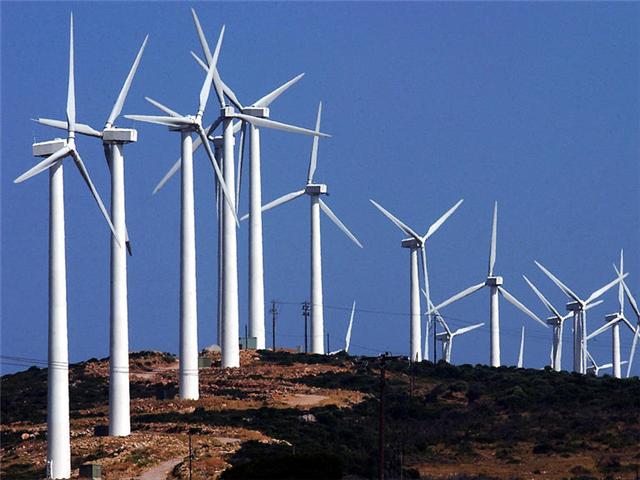Officially-True Lies
Administration policy is based on a series of falsehoods.
There are some falsehoods which the United States government has now adopted as dogma. They aren't true but they're repeated day in and day out. Sadly, they're sometimes not even deliberate falsehoods, because the people who repeat them have been brainwashed into believing them or are just too ignorant to realize the actual facts. "Greenhouse gas emissions aren't causing climate change." This comes in various flavors, like "I'm not a scientist" and "We don't kno...
CONTINUE READINGPublic Lands Watch: Resilient Federal Forests Act
Bill to reduce environmental protections for timber management on federal lands passes House
The Resilient Federal Forests Act (RFFA), H.R. 2936—which would curb environmental review under the National Environmental Policy Act (NEPA) for a variety of forest management activities on National Forest and BLM lands—passed the House November 1. (We previously wrote about a version of this bill in committee here.) NEPA requires agencies to consider whether proposed major federal actions may have significant environmental impacts. If a proposed action will have sig...
CONTINUE READINGA Major Defeat for Property Rights Advocates
Hardly anyone noticed a decision last June limiting the rights of property owners against regulators.
Murr v. Wisconsin was a sleeper case decided by the Supreme Court last June. But it deserves a lot more attention than it has gotten. As I discuss in a new paper, Murr was a major defeat for property rights advocates and a big win for land use planners and environmentalists. Murr has escaped much notice for two reasons. First, the facts were undramatic, involving a dispute about whether one of two adjoining lots on the shore of a river could be separately developed. S...
CONTINUE READINGIt’s Official: Climate Change is Real and It’s Serious
The Administration allowed a key scientific report to come out. They'll have trouble explaining it away.
The release of the Fourth National Climate Assessment got some attention from the press. The press mostly focused on the forthright endorsement of climate science by the NCA4 report -- something of a surprise in the anti-science Trump Administration. That was indeed notable, but there are other features of the report that will make it harder for the Administration to get away legally with ignoring or downplaying climate change. The endorsement of climate science w...
CONTINUE READINGHouse Republican Tax Plan Would Hurt Climate And Clean Tech Progress
The plan hits electric vehicles and wind energy but could present an opening for a national carbon tax
Republicans in the House of Representatives debuted their proposed tax reforms today, and climate and clean tech advocates are looking to see how the proposals will affect progress on these intertwined issues. Specifically, tax reform could impact electric vehicle and renewable energy deployment, which rely on federal tax credits to stimulate investment and demand. To that end, Republicans want to completely eliminate the $7500 federal tax credit for battery electric veh...
CONTINUE READINGPublic Lands Watch: Sage grouse
Interior Dept. considering revisions to protection for iconic species
The greater sage-grouse is the largest grouse species in North America, about the size of a domestic chicken. Estimates for its historic population are that it numbered 1.1 million across the sagebrush plains throughout the Western United States and Canada. The grouse depends on sagebrush habitat, but that habitat is declining due to a range of issues including invasive species, wildfire, and oil and gas development. Population estimates today for these pieces are ...
CONTINUE READINGHot Off the Presses: An Intro to Climate Change Law and Policy
The Paris Agreement. The Clean Power Plan. Geo-Engineering. Trump. And there’s more!
I'm really excited to announce the publication of Climate Change Law: Concepts & Insights (Foundation Press 2017), by Cinnamon Carlarne and me. There are lots of great scholarly tomes on the subject -- either monographs or collected volumes. But there really hasn't been anything that provides a comprehensive introduction to climate law as a whole, from international climate agreements to U.S. energy policy to geo-engineering. So far as I know, this is the first boo...
CONTINUE READINGFlorida’s Retro Energy Policy
It may be called the Sunshine State, but you wouldn’t know that from the lack of solar.
Florida is the paradigm of the ostrich with its head in the sand. It may be the most vulnerable state to climate change. Yet, the state government is assiduously ignoring the problem though some cities and counties and South Florida are keenly aware of the risks. Even after Hurricane Irma, the governor still professed complete uncertainty on the subject: “Clearly our environment changes all the time, and whether that’s cycles we’re going through or whether that’s...
CONTINUE READINGSan Francisco Tests Supreme Court’s “Hole” In Prop 13 & 218 Restrictions On Local Tax Increases
Ambiguity in California Cannabis Coalition vs. City of Upland creates an opening for simple majority approvals
As I blogged in August, the California Supreme Court potentially "ripped a huge hole" in Prop 13 and 218, the two state constitutional initiatives that created a two-thirds majority requirement on local tax measures. In California Cannabis Coalition vs. City of Upland, the court held that "general taxes" initiated by citizens is not bound by Prop 218 requirements. Although the facts and procedures in the original case were relatively narrow, the reasoning used by the ...
CONTINUE READINGRenewable Energy in the Mountain West: A Tale of Two States
Wyoming and Colorado are very different places — but renewables are thriving in both states.
Politics play an important role in determining the fate of renewable energy in particular places, but so does economics. The Trump Administration is trying to shift the economics, but it seems unlikely they'll be able to have much impact. For now, at least, there are a variety of motivations for states to embrace renewables, as illustrated by two of the Mountain States. Wyoming and California differ dramatically in their politics and their state economies. But ren...
CONTINUE READING










